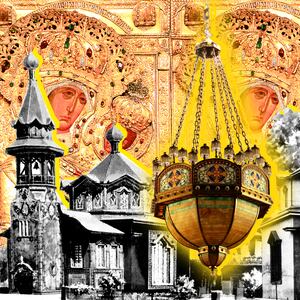Lent just began and, for many Christians, it’s a period of reflection and abstinence. It commemorates the 40 days and nights that Jesus spent in the wilderness after his baptism. But Jesus never would have ended up being tempted by Satan had it not been for the work of a different man: John the Baptist.
It was John’s charisma and reputation that drew Jesus to the river Jordan to get baptized and kicked off Jesus’ ministry. He’s also one of the best historically attested characters in the New Testament, that said, he’s a bit misunderstood.
What John the Baptist is most famous for is his distinctive lifestyle: he dressed in camel hair and lived on a diet of locusts and wild honey. The camel hair garment indicates that we should think of him as like a prophet, specifically Elijah. Elijah is described as a “hairy man” in the Bible but later interpreters tended to think that Elijah wore a hairy garment, instead. John’s diet seems to anticipate an ever-so-trendy interest in raw honey and insect protein, but as biblical scholar James Kelhoffer has argued, it’s probably supposed to make us think of him as a man of simplicity and purity as no one else would have handled his food for him. As strange as it might seem to us, early Christians thought of John the Baptist’s diet as something to emulate: there’s even an ancient Syriac tradition that goes further and argues that he was actually a vegetarian.
John the Baptist was, like the prophets of the Hebrew Bible, interested in getting people to change their behavior. This is the context in which Jesus and John meet. In the earliest version of the story (the one in the Gospel of Mark), Jesus first meets John on the banks of the river Jordan at his baptism. It’s at this moment that God identifies Jesus as his son. Nothing in Mark’s version of events suggests that before Jesus encountered John, Jesus knew that he was the messiah. The Gospel of Mark actually starts here, with John the Baptist’s preaching.
Just in principle, the baptism caused some problems for later Christian thinkers. The New Testament writers agree that John the Baptist was telling people that they needed to be baptized as a sign of their repentance for their sins. Jesus, according to Christian theology, never sinned. So why was he getting baptized? Early on the author of the Gospel of Matthew recognized the problem and emended his source (the Gospel of Mark) so that John asks Jesus “I need to be baptized by you, why do you come to me?.” Jesus’ response is a little vague, but later theologians explain that the only reason Jesus visits John the Baptist is to set an example for everyone else.
A related problem is that it’s not completely clear that John the Baptist and his followers are believers in Jesus. Yes, there is a story in which the imprisoned John the Baptist sends messengers to Jesus to find out if Jesus is the promised one. But that raises as many questions as it answers: did John the Baptist not know that Jesus was the Son of God at the baptism? And, if he did, why didn’t he and his followers become followers of Jesus? The Gospel of John addresses the issue so that John the Baptist explicitly proclaims that Jesus is the Son of God, but in the other three (earlier) versions John the Baptist continues with his own ministry independently of Jesus.
For this reason, some scholars think that Jesus and John the Baptist were religious competitors. According to Acts of the Apostles, there were followers of John the Baptist who were preaching his message of baptism even after he had died. And some of his followers seem to have thought that Jesus might have been John the Baptist come to life. At one point, when Jesus asks the disciples who people think he is, they respond that some people think he is John the Baptist. Even Herod, the man responsible for having John the Baptist beheaded, was apparently a bit confused.
At least some of these questions can be resolved if you expand their relationship. According to the Gospel of Luke, John the Baptist actually had known Jesus since childhood because they were related. Mary visited her relative Elizabeth (tradition calls her Mary’s cousin but the Bible just says “kinswoman”) while they were both pregnant and Elizabeth’s child “leapt” in the womb to encounter in utero Jesus. And this is how Luke deals with the John the Baptist ‘problem’: they weren’t rivals, they were relatives.
One of the most interesting things about John the Baptist is how popular and well known he was. Each of the four Gospels refers to him, his ministry, and his eventual death. In addition, an independent source, the Jewish historian Josephus, briefly describes his teachings and death. Taken together this is pretty good evidence that John the Baptist existed and baptized people, including Jesus. According to Josephus, John was a “good man who commanded the Jews to exercise virtue” who attracted “many people… in crowds” to himself. Herod executed John, Josephus says, because he “feared that the great influence John had over the masses might… enable him to raise a rebellion.” The fact that Herod Antipas was actually threatened by John and his political power suggests that he was a powerful, charismatic figure. And it’s a much more likely explanation for his death than the version in the New Testament in which John was executed after Salome, the stepdaughter of Herod Antipas, asked the king for the head of John the Baptist. Some even thought that the subsequent destruction of Herod’s army in 37 A.D. was a punishment from God for killing John.
Over time, and in the grand scheme of Christian theology and tradition, Jesus—the incarnate second person of the trinity—is considerably more important and significant than John the Baptist. But at the time, in his own day, and to his contemporaries John the Baptist was clearly more famous than Jesus.







